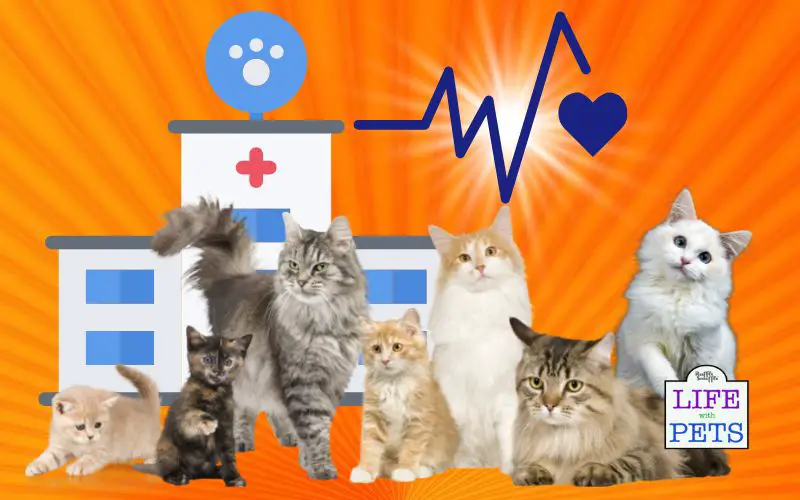Preventing major illnesses or catching them early when they are more readily treated is the best way to ensure your cat has a long and healthy life.
Taking your cat to the vet on a regular basis allows your veterinarian to check your kitty’s overall welfare and physical health, look for early symptoms of disease, and make suggestions for the finest preventative care items for your feline buddy.
We recognize that the expense of periodic exams and preventative treatment might be prohibitively expensive, especially if your feline companion looks to be in good condition.
Taking a proactive, preventative approach to your cat or kitten’s health, on the other hand, may save you money on more costly procedures later on.
What Exactly Is a Cat Checkup?
Bringing your cat to the vet for routine health checkups is similar to taking them to the doctor for a physical.
As with humans, the frequency with which your cat should receive a medical checkup is determined by their age, lifestyle, and overall health.
Annual wellness checkups are normally recommended for healthy adult cats, but kittens, older cats, and kitties with underlying health concerns should see their vet more regularly.
How Often Should Kittens Visit the Veterinarian?
If your cat is less than a year old, we recommend taking them to the vet once a month, beginning when they are around 8 weeks old.
Throughout their first year, kittens require many rounds of vaccines to help protect them from common infectious illnesses.
Kittens should receive both the feline leukemia vaccination and the FVRCP vaccine, which protects your Cat feline buddy against three extremely infectious and possibly deadly cat feline diseases:
Feline viral rhinotracheitis (FHV-1), feline calicivirus (FCV), and feline panleukopenia (FPL).
Your kitten will receive these immunizations over a period of around 16 weeks, which will go a long way toward keeping them healthy for the rest of their lives.
The exact timing of your kitten’s immunizations will vary based on your region and your pet’s overall health.
Our veterinarians recommend having your kitten spayed or neutered between the ages of 5 and 6 months to avoid a variety of illnesses and unpleasant habits, as well as unwanted litters of kittens.
How Frequently Should Middle-Aged Cats Visit the Vet?
We recommend bringing in your healthy adult cat between the ages of one and ten once a year for an exam. These are yearly physicals that should be performed even if your cat looks to be in good health.
During your adult cat’s standard inspection, your veterinarian will perform a head-to-tail examination to search for early symptoms of illness or other difficulties, such as parasites, joint discomfort, or tooth decay.
Your veterinarian will also give your cat any necessary immunizations or booster doses, discuss your cat’s food and nutritional needs, and prescribe parasite protection items.
If your veterinarian notices any indicators of a health problem, they will explain their findings and advise you on the next steps.
How Frequently Should Older Cats Visit the Veterinarian?
Cats are considered seniors when they reach the age of 11 years.
We recommend taking your senior cat to the vet every 6 months because numerous feline ailments and injuries are more frequent in older cats.
All of the above-mentioned exams and suggestions will be included in your senior cat’s twice-yearly wellness check-ups, along with a few more diagnostic procedures to obtain further insight into your furry friend’s general health.
Blood tests and urinalysis are two diagnostic procedures we prescribe for our older patients to look for early indicators of diseases like renal disease or diabetes.
As age-related concerns such as joint discomfort become more widespread, geriatric care for cats includes a more proactive approach to keeping your feline companion comfortable.
If you have an elderly cat, ask your veterinarian how frequently you should bring your pet in for a routine exam.
Please keep in mind that the material on this page is for educational purposes only and does not represent medical advice for pets.
Please schedule an appointment with your veterinarian for an accurate diagnosis of your pet’s illness.

